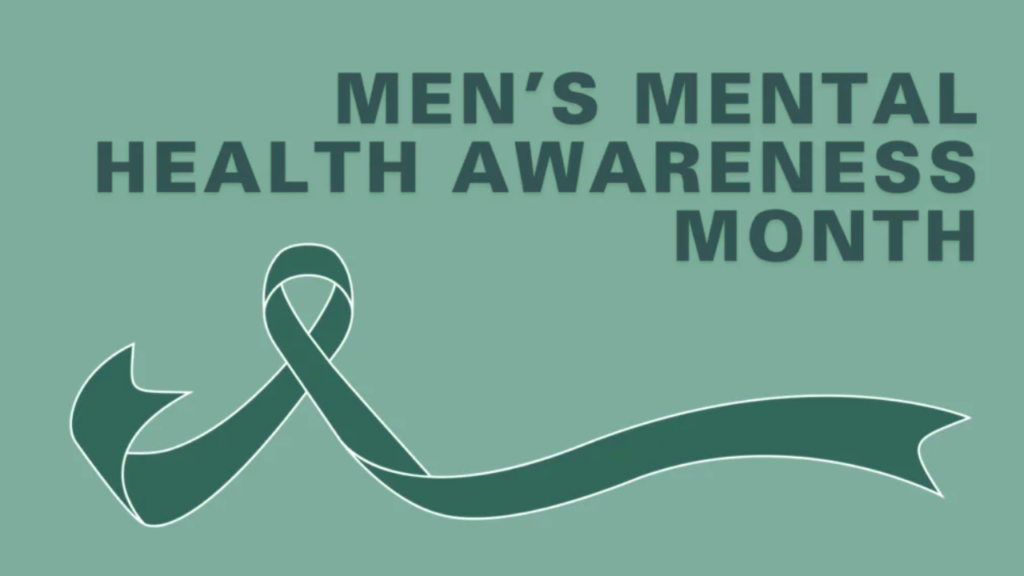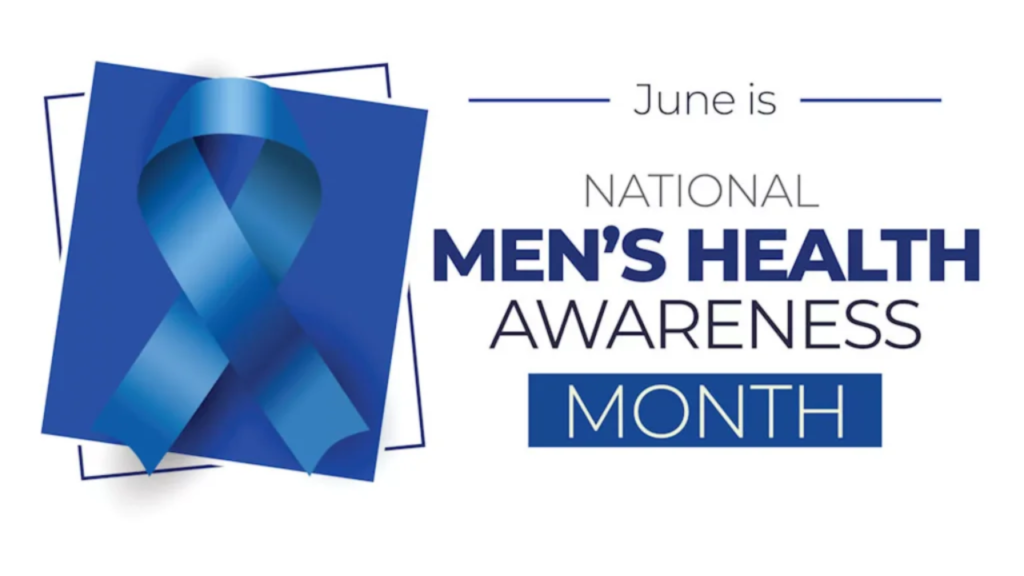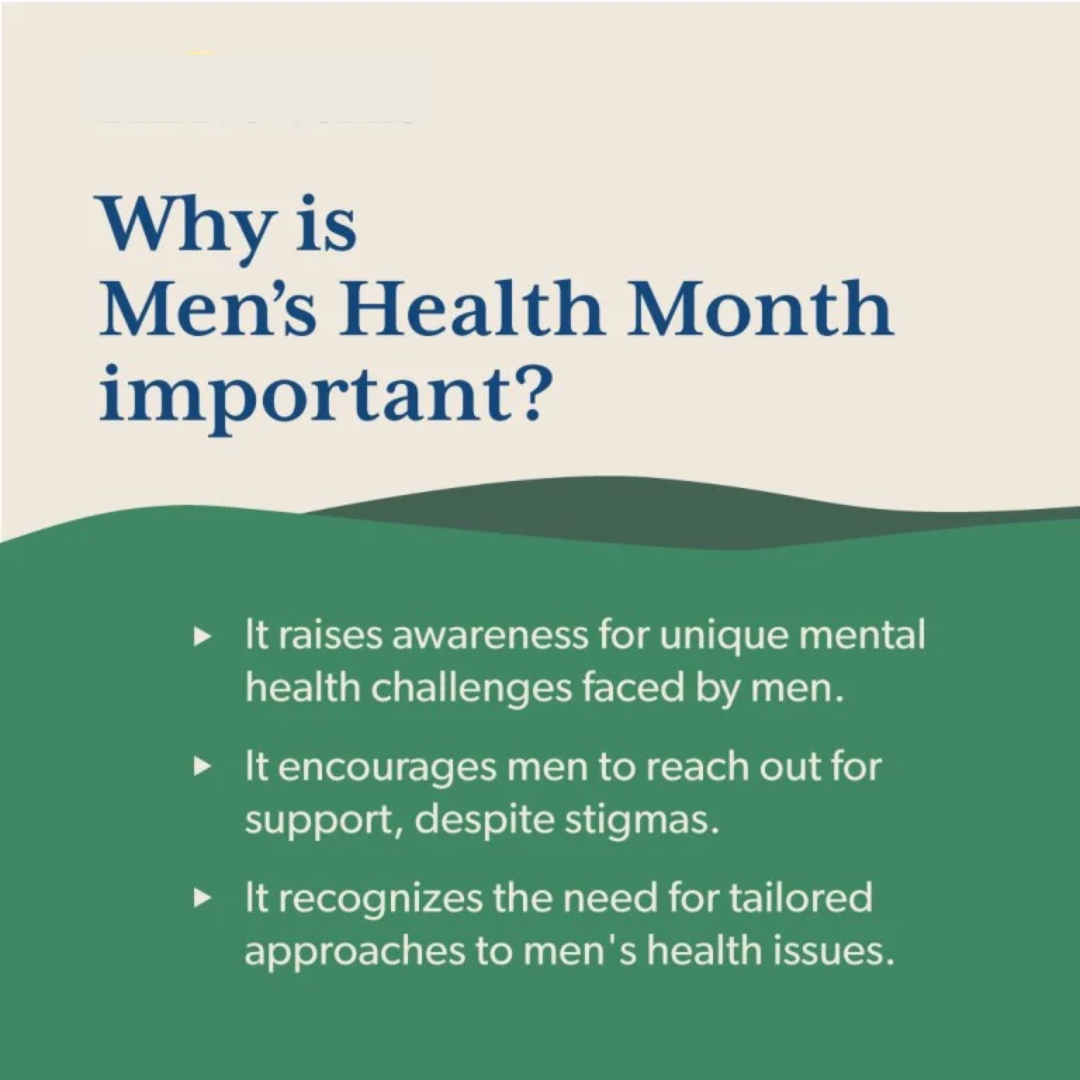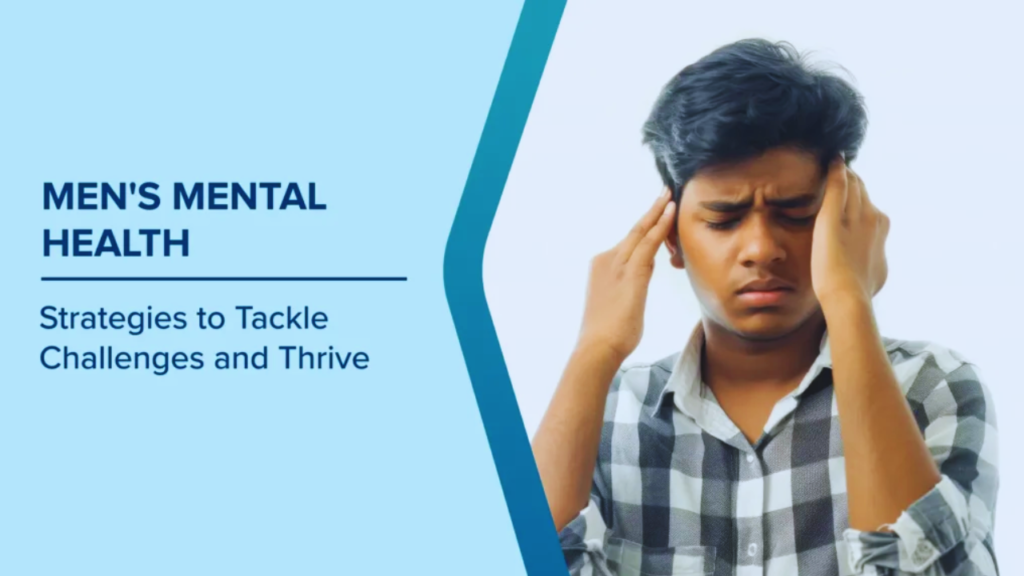
We are talking about mental health more than ever before. Individuals are becoming more open about their struggles regarding mental health nowadays, and we are all learning how to better support one another. However, men’s mental health is often underreported, as many men hesitate to seek the help they need.
This is where Men’s Mental Health Awareness Month plays a vital role. It aims to highlight the mental health challenges that men face and encourages them to reach out for support. This month serves as a chance to break the stigma surrounding men’s mental health, foster open conversations, and give resources to people who need assistance.
To learn everything regarding Men’s Mental Health Awareness Month, check this entire article.
What Month Is Men’s Mental Health Awareness Month?

The International Men’s Health Month website designates June as Men’s Mental Health Awareness Month, a recognition shared by Mental Health America. However, it is important to note that not all countries celebrate June as Men’s Mental Health Awareness Month.
For instance, if you want to know about Men’s Mental Health Awareness Month UK, then it is celebrated in November. This month is often referred to as Movember, during which men grow mustaches to increase awareness about various men’s health issues. These include not only mental health problems but also conditions such as testicular and prostate cancer.
What Is The Importance of Men’s Mental Health Awareness Month?

Men’s mental health is an important issue that frequently gets overlooked. Unlike physical health, you can’t always see mental health problems, which makes them easy to ignore. Many men don’t talk about their mental health struggles because of several factors, which include society’s perceptions and stigma.
Men are about half as likely as women to seek professional support for mental health issues. Yet, mental health is equally crucial as physical health, if not even more important. When men have good mental health, they can handle stress better, work more effectively, and make positive contributions to their communities.
Understanding the Issues Surrounding Men’s Mental Health
Stigma still surrounds men’s mental health, making it harder for boys and men to seek professional help. Many men feel pressured by society to hide their feelings and “tough it out,” believing they must appear strong. For some men, admitting to a mental health issue is wrongly seen as a lack of masculinity or a sign of weakness.
However, mental health issues are not symptoms of personal failings. In fact, they are health conditions like any other. Just as you wouldn’t hesitate to see a doctor for a broken arm, reaching out to a mental health therapist is equally important and nothing to be ashamed of.
Men’s Mental Health Awareness Month Statistics
The National Institute of Mental Health notes that mental health issues appear more common in women compared to men. However, it is possibly because men are less likely to open up and seek professional help. In 2022, 56.9% of women with mental health issues received support from mental health professionals, compared to only 41.6% of men.
Furthermore, the Centers for Disease Control and Prevention reported that in 2022, the suicide rate for men was about four times higher than for women. It also reported that males account for nearly 80% of all suicides. Men are also more prone to turning to substance abuse instead of seeking mental health care.
Even when men do seek professional help, accessing the right support can be challenging. In the U.S. and globally, mental health care often lacks adequate funding, and many people do not prioritize it.
Symptoms of Bad Mental Health in Men
Men and women may experience similar symptoms of mental health issues, but studies show some symptoms appear more frequently in men. Thus, it’s important to recognize these signs.
Common symptoms include facing constant worry, feeling continuously sad and overwhelmed, and withdrawing from loved ones. Other symptoms to watch for are shortness of breath, fatigue, trouble concentrating, and headaches.
However, in men’s mental health, additional factors are often seen more than women. These include sleep problems, substance abuse, and excessive work habits. Men may also experience increased anger and irritability. Additionally, they might engage in reckless behavior when dealing with mental health conditions.
Men’s Mental Health and Intersectionality
Mental health issues can affect any man, but some groups experience them more heavily. For instance, a study reported that LGBTQ+ men face mental health challenges more often than their cisgender and straight peers. Also, the Centers for Disease Control and Prevention reported that adults with disabilities experience mental health issues nearly five times more frequently than those without disabilities.
Men from People of Color, Black, and Indigenous communities have mental health issues at similar rates to white men but face greater barriers to accessing mental health care. As a result, they often depend more on community support instead of professional mental health services.
Advice for Men Facing Mental Health Challenges

If you’re having a tough time with your mental health, there are several steps you can take. One important step is to talk to someone, whether it’s a professional psychiatrist, a family member, a friend, your general practitioner, or a mental health organization. Alongside this, you can try different coping strategies to support your mental well-being daily.
The Five Ways to Wellbeing offers a good starting point. They focus on connecting with others, staying active, being mindful of your surroundings, learning new skills, and giving to others. Here are some tips to help improve your mental health:
- Stay Active: Engaging in physical activities like running, walking, or going to the gym can boost your mood as your brain releases endorphins. Any kind of movement is beneficial—start by simply stepping outside. Once you begin moving, taking the next step becomes more effortless.
- Socialize: Interacting with others helps you step outside your own thoughts and reduces feelings of loneliness, which can lead to negative thinking. Whether you’re spending time with friends and family or simply greeting a stranger during a walk, being social helps you maintain perspective and reminds you that you are not alone.
- Take Care of Yourself: Focusing on essentials like working out, getting enough sleep, and eating nutritious meals can significantly improve your physical and mental health.
- Try Some Relaxation Strategies: When you are feeling overwhelmed or stressed, you can ground yourself by noticing 5 things around you. These things include what you can smell, touch, hear, or see, —can help center your mind. Another effective method is to focus on your breathing. Inhale for a count of four, then exhale for a longer count. This extended exhale can help you relax by soothing your parasympathetic nervous system.
- Decrease Your Alcohol Consumption: While spending time with friends is beneficial, reducing alcohol consumption can improve your mental health. Alcohol can have depressive effects, and if you are already feeling down, it might make things worse. It can be tough to refuse a drink if you’re stressed and rely on it as a crutch, but try choosing a non-alcoholic option or a soft drink instead. You could also plan activities with friends that don’t involve drinking at all.
Final Words
Although Men’s Mental Health Awareness Month is crucial, it’s important to focus on men’s mental health all year long. It is now more acceptable for men to show their emotions and seek help for their mental health conditions than before. However, we still need to tackle the stigma that suggests men should not require mental health support.
Engage in conversations with the men in your life. If you’re dealing with anger, anxiety, depression, or other mental health challenges, remember that support is available. You aren’t alone, and seeking help doesn’t diminish your masculinity.
Let’s use June as an opportunity to educate ourselves and others, creating a space where all men feel encouraged to care for their mental health and look for professional support. I am hopeful that after reading this article, you now know when is men’s mental health awareness month and what you need to do in this month.
